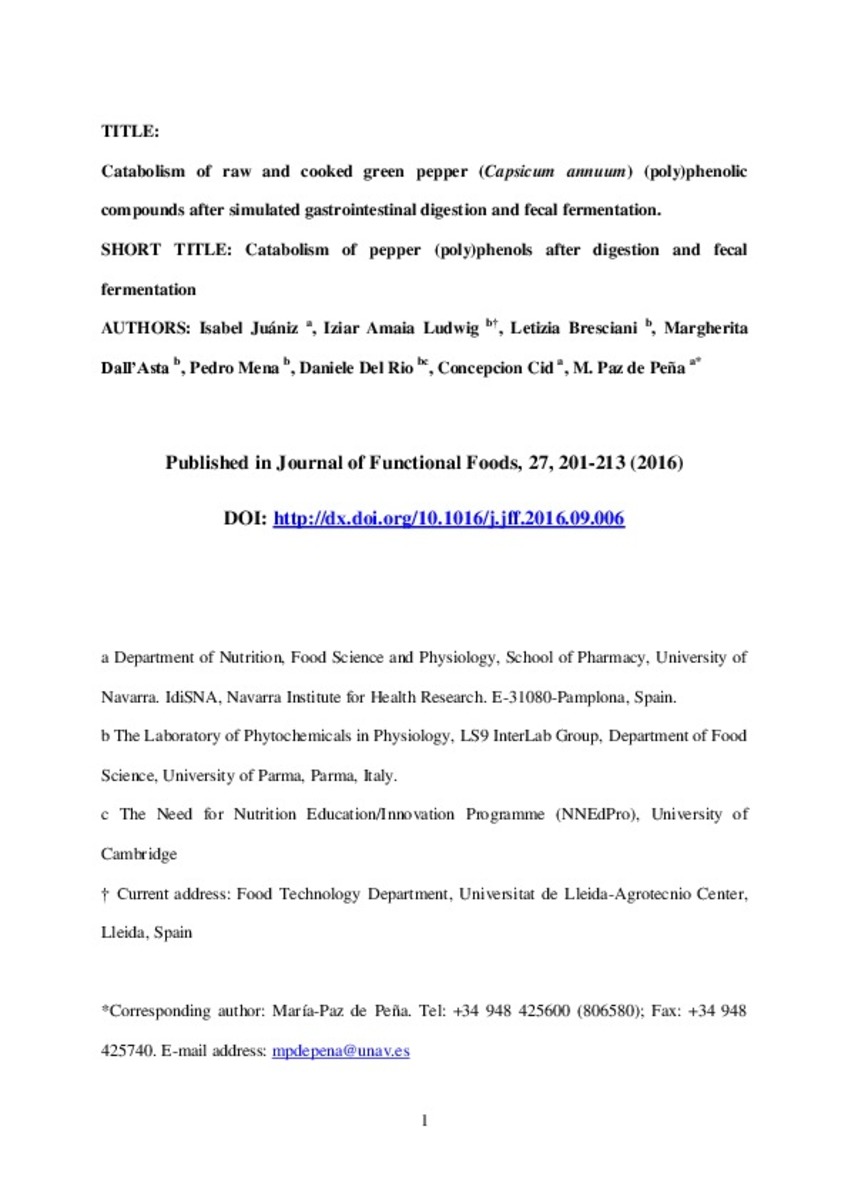Catabolism of raw and cooked green pepper (Capsicum annuum) (poly)phenolic compounds after simulated gastrointestinal digestion and fecal fermentation
Keywords:
Materias Investigacion::Farmacia
Polyphenols
In vitro bioaccessibility
In vitro gastrointestinal digestion
Colonic catabolism
Heat treatment
Pepper
Citation:
Juaniz I, Ludwig IA, Bresciani L, Dall'Asta M, Mena P, Del Rio D, et al. Catabolism of raw and cooked green pepper (Capsicum annuum) (poly)phenolic compounds after simulated gastrointestinal digestion and fecal fermentation. J Funct Foods 2016 Dec;27:201-213.
Statistics and impact
0 citas en

0 citas en

Items in Dadun are protected by copyright, with all rights reserved, unless otherwise indicated.







